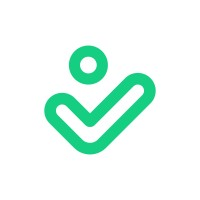Empowering Africa’s tomorrow, together…one story at a time.
With over 100 years of rich history and strongly positioned as a local bank with regional and international expertise, a career with our family offers the opportunity to be part of this exciting growth journey, to reset our future and shape our destiny as a proudly African group.
Job Summary
Lead the agile solution design, deployment & ongoing optimization & evolution of less complex enterprise wide technology platforms & delivery systems
Job Description
As an engineering lead, you will participate in and co-ordinate technology engineering, investment and deployment across the IAAS services brokered by Engineering Services Platforms Office, optimising the value chain to remain competitive with external service providers.
You will ensure alignment across ESPO technology functions to best deliver on the modernisation strategy required by ESPO’s clients, adopting a similar end-to-end management paradigm to a DevOps focused organisation.
- Operate in a cross-functional team spanning network, server, storage and security domains to architect and engineer the hybrid cloud solutions.
- This includes the connectivity, availability, management and performance requirements in the architecture and solutions.
Drive direct interaction with IT clients and business to ensure relevancy and client centric solutions.
- Assist in the development of roadmaps across ESPO and the wider group to include options and opportunities that can be leveraged by emerging technologies, whether they are deemed mature or not. (The assumption is that the proper level of maturity will be reached at road map phase execution time).
Participate in and manage vendor interactions to provide a consistent application of strategy.
Work with peers to optimise domain management and engineering to deliver on fit for purpose, agile solutions that most optimally meet business requirements through workforce mapping, re(sourcing) and skills alignment. This includes management practices, automation and provisioning as technology will not be the sole focus.
Assist the ESPO functional teams to elevate the function of product management to manage multi-disciplinary teams and stacks in each IAAS value chain.
Key Responsibilities
Accountability: Product Development
- Accountable for the strategy of one or more Products or Services, including the development and maintenance of the “buy, hold, sell” status of each
- Drive the Product Strategies
- Drive the technology Products & Services architecture
- Lead technology research, evaluation and build efforts in support of product strategies
- Lead the translation of cross LoB requirements and demand into product strategies
- Lead engineers in developing and managing technical design and configuration into the implementation of product strategies
- Drive a maintenance plan for all products to ensure version and patch levels are maintained to defined standards
- Manage the technology capacity of all products and services within a domain:
- Ensure capacity instrumentation is engineered into their products and that robust operational capacity processes are established by the relevant service delivery organizations supporting them.
- Establish a process to ensure future demand for services is understood and accounted for in investment/expansion plans.
Accountability: Service Development
- Accountable for the development and maintenance of a reference architecture and multiyear roadmap for each service
- Lead the design of services, ensuring they meet LoB requirements and make use of standard product components
- Maintain oversight of operational performance for all services, ensuring they perform to defined SLA’s and driving strategies for improvements where required
- Work with all relevant service delivery organizations across the firm to ensure services are implementable and supportable. Ensure robust procedures are developed for both, leveraging efficiencies wherever possible
Accountability: Service Financials
- Accountable for the total cost of ownership for their products and services, matching pricing and recoveries for services against LoB demand to ensure a flat P&L for each service
- Develop and maintain the necessary entries for their domain within the service catalogue, documenting the key criteria for each service such as pricing, availability, service levels and inclusions/exclusions
- Develop the method of consumption and measurement of each service such as inventory systems, ensure such methods are robust and supportable
- Ensure that products and services are financially efficient and continually seek opportunities to improve that efficiency over time
Accountability: Risk Management
- Ensure all Products and Services offered are compliant with firm-wide audit & control and architecture principles & guidelines
- Ensure all Products and Services are engineered with the necessary resiliency to meet LoB business continuity requirements. Ensure this is tested and validated on a regular basis
Accountability: Maintain LoB Relationships
- Work with LoB’s to understand and document current and future demand for technology products and services
- Maintain ongoing relationships with key LoB contacts and Operations to measure LoB's satisfaction with products and services
- Communicate product and service roadmap/strategies to LoB’s
Accountability: Vendor Relationships
- Manage vendor relationships and vendor selection for their products, in conjunction with the Vendor Management group
- Identify industry/third party vendor directions and their impact to the domain
Key performance measure
- Efficiency and effectiveness
- Service performance
- Quality of relationships gained or sustained
- Quality of the work
- Cost of the work
- Cost benefit derived from the outputs of the job
- Customer satisfaction
- Revenue generation
- Processing efficiency
- Number of complaints decreased due to effective root cause analysis
Experience & Qualifications required
- 10-15 years technology experience, preferably within financial services
- 5 – 7 years of Project Management experience
- 3 – 5 years of People Management experience
- Tertiary Qualification or equivalent
- Relevant industry qualifications such as, TOGAF, Microsoft, Citrix, CISCO, Avaya, HP, Dell, VMWare and Cloud Certifications
- Technology Lifecycle Management
- Strategic Management
- Financial Management
- Service Management
- Demand Management
- Performance and Capacity Management
- Technology Product Management
- Relationship Management (Vendor, Business and Customer)
- Risk Management
- People Management
- Project Management
- Time Management
- Knowledge Management
- Business Acumen
- Systems Engineering
- Infrastructure Architecture and Solution Design
- Disaster Recovery and Business Continuity
- Automation Tooling and Integration, as well as Infrastructure as Code
- Software Development and Life-Cycle Management
- DevOps and and CI/CD
- Cloud Computing
- Virtualisation
- Compute Platforms (Intel x86, pSeries)
- Operating Systems (Linux, Windows, AIX, AS400)
- Storage and Backup Platforms
Technical competencies
- Solid technical understanding of the products to be managed, gained through a technical support or engineering background
- Strong understanding of the current state and strategic direction of their products
- Ability to clearly translate technology detail into business language and vice versa
Technical Competencies by Knowledge Area
Automation Tooling and Integration / Infrastructure as Code
- Working knowledge and understanding of scripting languages (e.g., Python, Bash, PowerShell) for code review.
- Experience with Infrastructure as Code tools such as Terraform, Ansible.
- Knowledge of and a working understanding of integrating automation workflows using CI/CD pipelines and orchestration tools (e.g., Jenkins, GitHub Actions, GitLab CI).
- Ability to design automated provisioning, configuration, and deployment of infrastructure components and review implementation.
- Familiarity with RESTful APIs and webhooks for tool integration and event-driven automation.
Software Development and Life-Cycle Management
- Strong understanding of software development methodologies (Agile, Scrum, Waterfall).
- Working knowledge of version control systems (e.g., Git) and branching strategies.
- Working knowledge of application lifecycle management tools (e.g., Azure DevOps, Jira, Confluence).
- Understanding of code repositories management, perform code reviews, and creation of coding standards.
- Working knowledge and understanding of continuous integration and automated testing practices.
- Ability understand code written in .NET languages like C#
DevOps and CI/CD
- Experience or knowledge of CI/CD tools such as Jenkins, GitLab CI, Azure DevOps, or GoCD.
- Knowledge of containerization and orchestration platforms (e.g., Docker, Kubernetes).
- Ability to design and review build and release pipelines for multi-environment deployments.
- Familiarity with monitoring and logging tools (e.g., Prometheus, Grafana, ELK Stack).
- Experience implementing DevOps best practices to improve deployment frequency and system reliability.
Cloud Computing
- Working knowledge and practical experience in cloud platforms such as AWS, Azure, or Google Cloud Platform.
- Experience with cloud-native services (e.g., serverless computing, managed databases, storage solutions).
- Skilled in designing scalable, secure, and cost-effective cloud architectures.
- Familiarity with cloud governance, identity and access management, and billing optimization.
- Ability to implement hybrid and multi-cloud strategies.
Virtualisation
- Experience with virtualization platforms such as VMware vSphere, Microsoft Hyper-V, or KVM (e.g. OpenShift, Xen).
- Working knowledge of tasks like creating and managing virtual machines, templates, and snapshots.
- Understanding of virtual networking, storage provisioning, and resource allocation.
- Knowledge of virtualisation architectures to understand and review troubleshooting of performance issues in virtualized environments.
- Familiarity with VDI solutions and virtual desktop infrastructure.
Compute Platforms (Intel x86, pSeries)
- Strong knowledge of Intel x86 architecture and server hardware components.
- Knowledge of IBM Power Systems (pSeries) including LPAR configuration and management.
- Knowledge of and understanding how hardware diagnostics, firmware updates, and performance tuning is performed.
- Knowledge of and understanding of platform-specific tools (e.g., HMC for pSeries, iLO/iDRAC for x86).
- Understanding of platform compatibility and workload optimization.
Operating Systems (Linux, Windows, AIX, AS400)
- Knowledge and understanding of system administration for Linux (RHEL, Ubuntu), Windows Server, and AIX.
- Knowledge and understanding of AS400 (IBM i) operations.
- Knowledge and understanding of OS-level troubleshooting, patching, and performance monitoring.
- Familiarity with system hardening and compliance standards (e.g., CIS benchmarks).
Storage and Backup Platforms
- Knowledge and understanding of enterprise storage solutions (e.g., NetApp, Dell EMC, IBM Storage).
- Understanding of SAN/NAS environments, SMB and NFS file sharing, and management of storage volumes.
- Knowledge of backup technologies (e.g., Veeam, Commvault, IBM Spectrum Protect).
- Knowledge and understanding of the correct implementation of data protection strategies including snapshots, replication, and archiving.
- Familiarity with disaster recovery planning and restore procedures.
Personal competencies
- Communicating with Impact: Good verbal communication
- Pays attention to detail
- Methodical
- Diplomatic
- Able to handle pressure
- Conflict Resolution
- Results-orientated
- Good numerical ability
- People management skills
- Team player
- Able to retain optimism despite setbacks
- Self-motivated, self-starter
- Good judgement
- Problem solving
- Planning
Problem solving, planning and decision making
Problem solving
- The individual must be able to think rationally and able to provide intelligent and well thought out advice.
- The individual must be innovative and think out of the box so as to provide appropriate solutions in terms of sourcing strategies and benefits.
- Provide analytical evidence to substantiate solutions.
Planning
- There will be a need for flexibility/re-evaluation in line with changing business needs.
- The individual must be able to understand, report on and actively drive the delivery of all strategic initiatives in conjunction with business area heads.
- The individual must have a strong execution focus – drive delivery.
Decision making
- The individual must be able to actively participate in the Decision making process within Absa IT Infrastructure. This means that the person must have the ability to interact at all levels, more especially at senior management.
- Decisions are made rationally and professionally, with due regard for Products and Services standards
- In many cases decisions will need to be made based on limited or unclear data. The individual will be expected to use their experience, judgement and management skill and factor this into their decision making process to limit the risk of poor decisions.
- This individual will have global, firm-wide accountability and authority over a specific technology domain. As such, decisions made can be far reaching and could impact the financial position and/or reputation of the Bank.
Education
Bachelor's Degree: Information Technology
Absa Bank Limited is an equal opportunity, affirmative action employer. In compliance with the Employment Equity Act 55 of 1998, preference will be given to suitable candidates from designated groups whose appointments will contribute towards achievement of equitable demographic representation of our workforce profile and add to the diversity of the Bank.
Absa Bank Limited reserves the right not to make an appointment to the post as advertised
Report job




